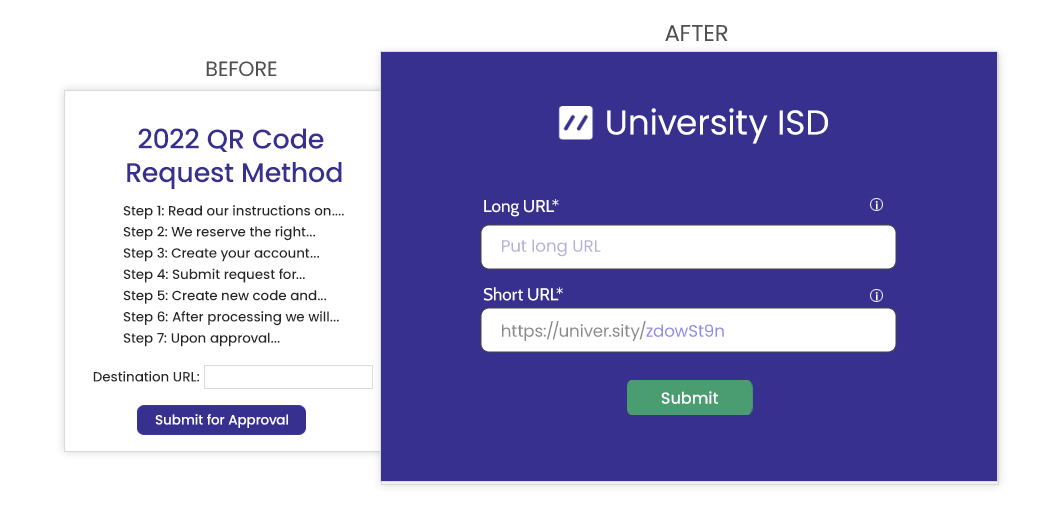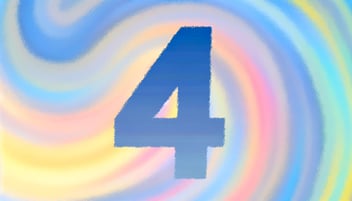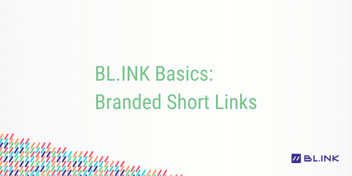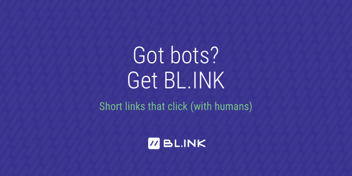
Listen to this blog
BL.INK vs Bitly: Which URL Shortener is Right For You?
Not all URL shorteners are created equal. Here are a few differences between BL.INK and Bit.ly.
Both companies started offering URL shortening in 2008. (BL.INK was originally called BudURL.) Bit.ly focused on small companies and individuals posting on the new Twitter platform. BL.INK found opportunities with large enterprises and took the path of creating features meant for large, enterprise organizations. While both companies have expanded offerings over the years, there are some key differences.
BL.INK is not free
Bit.ly is a good free or low-cost offering. If you're an individual, solopreneur, small company, or working on a class project, Bit.ly is a good choice. It's easy to access their free plan or pay a small fee. If you only need one or a few QR codes or links, turn to a free tool unless or until you need stronger security or advanced features.
BL.INK is not free. There are currently no free BL.INK plans. We offer a 21-day trial at no cost on all plans.
BL.INK spotlights your brand, not ours
If you need to create thousands of links or codes, need to track campaign data, and want to put your brand first, turn to BL.INK. With BL.INK, every short URL features your brand to improve click-through rates, protect and extend your brand by using a consistent, name- or word-based domain, and custom QR code options.
Standardize on one link management platform to save time, improve reporting, and scale with your needs
Recently, I stayed at a hotel and there were six QR codes in my room, and they all used different domains and were created using different providers. When you standardize link management with one provider, you not only save money and time managing multiple accounts, but you also get branding and link-building consistency.
When your marketing team across the globe uses the same templates from BL.INK, you can more easily measure marketing performance consistently. BL.INK links provide real-time analytics and perfectly structured campaign data for complete attribution reporting. Every single marketer will create links the exact same way, so you'll never miss attribution data again.
And when the next QR code or link management standards arrive, BL.INK will help you stay ahead of them. We're built to scale and grow along with your needs.
BL.INK offers complete link flexibility
Only BL.INK enables you to update or change any data once a QR code or link is live. BL.INK also enables you to create a fall-back URL for when a link or landing page is set to expire.
BL.INK alerts you to broken or 404 links
There are few things worse than a link that goes nowhere. It ruins the customer experience. And if you're paying for a digital ad that goes to a 404 link, it's wasted spend. BL.INK constantly scans all links for broken links and alerts you immediately. And with BL.INK's integration with ObservePoint further ensures page validation and compliance.
BL.INK is SOC2 Type 2 Accredited and HIPAA compliant
Because BL.INK works with large enterprises, we take compliance and security very seriously. If you require SSO, cybersecurity reviews, and advanced security requirements, or need a partner that will sign Business Associate Agreements for HIPAA compliance, turn to BL.INK.
Features built for enterprise clients
BL.INK offers rules-based routing that means a QR code or link destination can vary based on things like time of day, language, region, and more.
With BL.INK, you can surgically control access levels, so users must align with guidelines, and admins can make updates. Our E-Link feature enables an admin to set guidelines that enable users to create their own links on their own.

On the surface it may look like all URL shortener are the same. But now that you’re seeing the big picture, you have what you need to make an informed decision on a platform that shortens your links, improves customer trust, keeps your data private, and offers a plan that’s just right for your business now.
Get started creating links that truly click. Sign up for BL.INK today!



